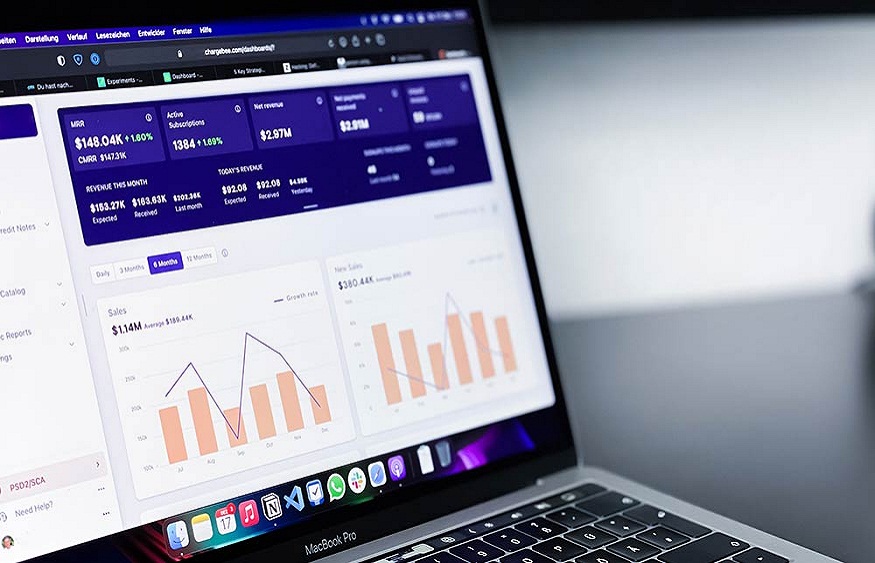In today’s digital age, Search Engine Marketing (SEM) has become an integral part of any business’s marketing strategy.
SEM, often used interchangeably with Pay-Per-Click (PPC) advertising, is a powerful tool for driving targeted traffic to your website and increasing brand visibility.
However, it’s not just about setting up ads and hoping for the best. To make the most of SEM campaigns, you need to continually refine and optimize your strategies.
This article will explore how you can improve your SEM campaigns and when it might be beneficial to consider hiring an agency to manage them on your behalf.
Improving Your SEM Campaigns
1. Set Clear Objectives
Before diving into the nitty-gritty of SEM campaign optimization, it’s crucial to have clear and specific objectives.
What are you trying to achieve with your SEM efforts? Are you looking to increase website traffic, generate leads, boost sales, or enhance brand awareness? Define your goals to have a clear direction for your campaigns.
2. Extensive Keyword Research
Keyword research is the cornerstone of search engine marketing campaigns. Carry out in-depth research on keywords in order to determine which keywords are the most pertinent to your company and also produce the best results.
Discovering lucrative keywords that are aligned with your business goals can be made easier with the assistance of tools such as SEMrush and Google’s Keyword Planner.
3. Optimize Ad Copy
Your ad copy plays a vital role in attracting potential customers. Write compelling, relevant, and engaging ad copy that addresses the pain points and needs of your target audience.
Use clear and concise language, and highlight unique selling points to stand out from the competition.
4. Landing Page Optimization
Your SEM campaigns will drive traffic to your website, but it’s equally important to ensure that your landing pages are optimized for conversions.
Your landing pages should be user-friendly, mobile-responsive, and provide a seamless user experience.
Test different elements such as headlines, forms, and calls to action to see what resonates best with your audience.
5. Implement Ad Extensions
Ad extensions are additional pieces of information that can be included with your ads to make them more informative and appealing.
Examples of ad extensions include site link extensions, callout extensions, and location extensions. Using ad extensions can increase the visibility and credibility of your ads.
6. Monitor and Adjust Bidding Strategies
Effective bidding strategies are essential to control your SEM campaign costs while maximizing results.
You can opt for manual bidding, automated bidding, or a combination of both, depending on your goals and resources. Regularly review your bid strategy and adjust it to maintain a balance between cost and performance.
7. A/B Testing
A/B testing, also known as split testing, involves creating two or more variations of your ad elements (such as headlines, ad copy, or images) to determine which version performs best.
This iterative process helps refine your SEM campaigns and improve click-through rates and conversion rates.
8. Track and Analyze Performance
To optimize SEM campaigns, you need data-driven insights. Use analytics tools like Google Analytics and Google Ads to monitor your campaigns’ performance.
Track key metrics like click-through rate (CTR), conversion rate, cost per conversion, and return on ad spend (ROAS).
9. Negative Keywords
Negative keywords are terms for which you want your ads not to appear. By adding negative keywords to your campaigns, you can filter out irrelevant traffic and reduce wasted ad spend. Regularly update your list of negative keywords to refine targeting.
10. Geographic Targeting
If your business serves specific geographic areas, make use of geographic targeting in your SEM campaigns.
This ensures that your ads are shown to users in locations where you can provide your products or services. It’s an effective way to reach a local or regional audience.
11. Quality Score Optimization
Google assigns a Quality Score to your keywords and landing pages. A higher Quality Score typically results in better ad placements and lower costs per click.
To improve your Quality Score, focus on creating relevant and compelling ad content, optimizing landing pages, and ensuring a fast and user-friendly website.
12. Budget Management
Managing your budget effectively is crucial for the success of your SEM campaigns. Ensure that your budget is allocated to high-performing keywords and ad groups while continuously monitoring and adjusting as needed to stay within your budget limits.
When to Consider Hiring an Agency
While the steps mentioned above can significantly improve your SEM campaigns, there may come a point where the complexity and demands of your advertising efforts exceed your in-house capabilities.
In such cases, partnering with a specialized SEM agency can be a wise decision. Here are some situations when you should consider hiring an agency:
1. Limited In-House Expertise
SEM requires a certain level of expertise, and staying up to date with industry trends and platform updates can be time-consuming.
If you lack the in-house expertise or don’t have the resources to invest in continuous training, an agency can provide a team of professionals with specialized knowledge.
2. Time Constraints
SEM campaigns demand constant attention. Managing keywords, ad copy, bids, and analytics is a daily task.
If your team is already stretched thin with other responsibilities, outsourcing SEM to an agency can ensure that your campaigns receive the necessary attention and expertise.
3. Expanding Campaigns
The intricacy and scope of your search engine marketing (SEM) initiatives will increase in tandem with the growth of your company.
When a company enters new markets, launches new products or services, or begins new marketing efforts, the in-house team can soon get overwhelmed.
Agencies are equipped with the resources and the knowledge necessary to effectively manage large-scale campaigns.
4. Access to Advanced Tools
SEM agencies often have access to advanced tools and software that can provide insights and automation capabilities that are not readily available to smaller businesses. These tools can streamline campaign management and improve results.
5. Performance Accountability
SEM agencies typically work on a performance-based model, which means they are accountable for the results they deliver.
This can provide a level of transparency and assurance that may be lacking when managing campaigns in-house.
6. Scalability
Agencies can quickly adapt to changes in your business needs. Whether you need to scale up or down your SEM efforts, agencies can adjust strategies and budgets accordingly to align with your goals.
7. Competitive Insights
Agencies often work with multiple clients in the same industry, giving them unique insights into what works and what doesn’t.
Leveraging this industry knowledge can help you stay competitive and make informed decisions about your SEM strategies.
8. Multichannel Expertise
SEM agencies can offer expertise in various advertising platforms beyond just Google Ads, including Bing Ads, social media advertising, and other search engines.
This multichannel approach can help you reach a broader audience and diversify your advertising efforts.
Conclusion
Improving your SEM campaigns is an ongoing process that requires a combination of research, testing, and optimization.
While many businesses can successfully manage their SEM efforts in-house, there may come a point where partnering with a specialized agency is a strategic move to maximize results.
Whether you choose to manage SEM campaigns internally or work with an agency, the key is to stay committed to continuous improvement. The digital marketing landscape is dynamic, and what works today may not work tomorrow.
By setting clear objectives, conducting extensive research, and staying updated on industry best practices, you can ensure that your SEM campaigns remain effective in achieving your business goals.













+ There are no comments
Add yours